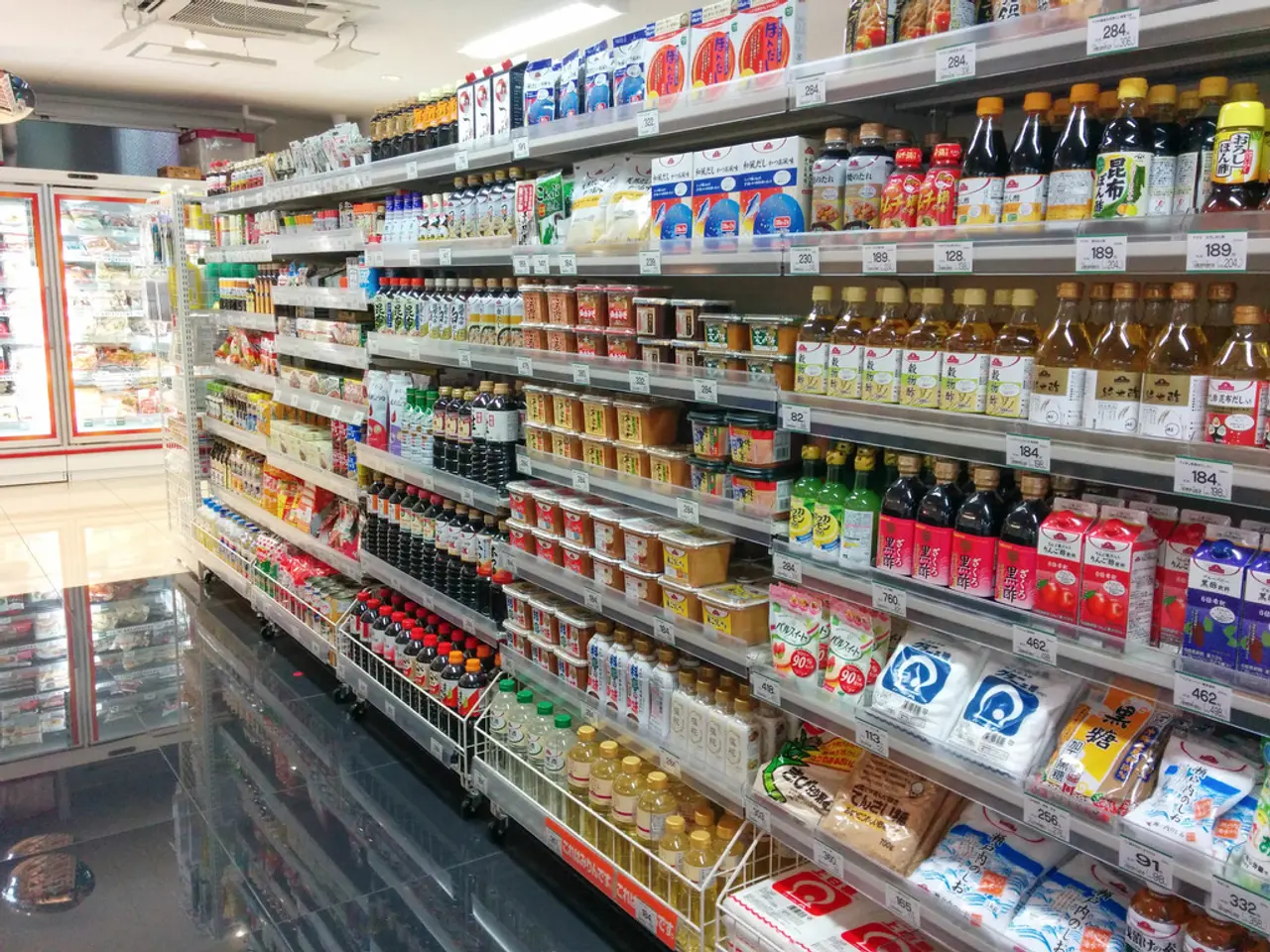Expands BigBasket's commitment to swift-commerce shift by shuttering Fresho stores
BigBasket, the Indian online grocery platform, is closing its Fresho offline grocery stores as part of a strategic pivot towards quick commerce. The decision comes after the company launched Fresho in 2021 as a foray into physical grocery retail [1][2].
Strategic Shift to Quick Commerce
In a bid to meet evolving consumer expectations for instant service, BigBasket is moving away from traditional offline and slotted delivery models towards quick delivery of groceries, often within minutes. This shift aligns with the demands of the modern consumer [1].
Expansion of Dark Stores
Despite shutting physical stores, BigBasket plans to nearly double its network of dark stores from 400 to 700 by the end of fiscal year 2026. Dark stores, local warehouses optimized for quick e-commerce fulfillment, are essential components of the quick-commerce model [1][2].
Financial Performance Pressures
The closure of Fresho stores is also driven by financial considerations. BigBasket's business saw a drop in turnover and widening losses in FY25. By focusing on quick commerce, the company aims to improve operational efficiency and capture a faster-growing market segment [1].
Consumer Behavior Changes
Initially, Fresho stores targeted reluctant online grocery users. However, with the increased acceptance of online ordering, quick commerce offers more convenience and faster service, better aligning with current consumer habits [1].
Market Competition
BigBasket is ramping up its effort to capture significant market share in the quick commerce segment where it competes with larger players such as Blinkit, Swiggy Instamart, Zepto, Flipkart Minutes, and Amazon [1].
Financial Overview
BigBasket's B2C arm, Innovative Retail Concepts, reported a 3% drop in turnover to ₹7,673 crore in FY25. The company's B2B unit, Supermarket Grocery Supplies, saw revenue decline 7% to ₹2,227 crore. BigBasket was last valued at $3.2 billion in December 2022 [1].
Tata Sons own over 65% of BigBasket, with Mirae Asset VC and UK's CDC Group among other backers [1]. At its peak, Fresho operated close to 200 outlets nationwide [1].
Market Dynamics
Swiggy Instamart grew 22% in Q1 FY26, while Blinkit's gross order value jumped over 25% sequentially in the same quarter. Zepto reportedly ceded market share during the June quarter [1].
As BigBasket focuses on its quick-commerce strategy, it aims to maximize rapid grocery delivery through an expanded dark store network, address financial challenges, and adapt to market trends [1][2].
[1] Mint, 2023 [2] Livemint, 2023








